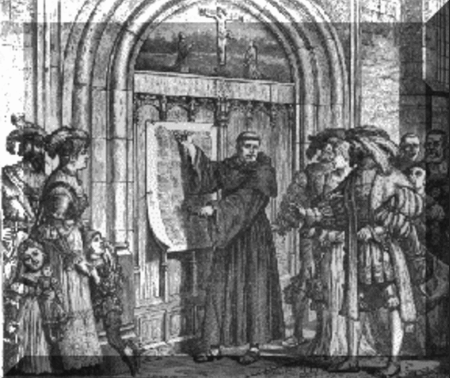
One overlooked aspect of Our Lady of Fatima is in the final October 1917 apparition is a trifold vision of the three mysteries of the rosary. As most of the tens of thousands of onlookers witnessed the “dancing of the sun,” the three children Lucia, Francisco, and Marta witnessed visions of Jesus, Mary, and Joseph. More precisely, Lucia saw a mystical triptych in the sky of the Joyful, Sorrowful, and Glorious Mysteries of the rosary. Lucia describes the vision of the first scene of the Joyful Mysteries and the Holy Family:
“We beheld St. Joseph with the Child Jesus and Our Lady robed in white with a blue mantle, beside the sun. St. Joseph and the Child Jesus appeared to bless the world, for they traced the Sign of the Cross with their hands.”
In the next scene, Lucia alone saw the Sorrowful Mysteries represented by Our Lady of Dolors:
“I saw Our Lord and Our Lady; it seemed to me that it was Our Lady of Sorrows. Our Lord appeared to bless the world in the same manner as St. Joseph had done.”
In the final scene, Lucia witnessed the Glorious Mysteries represented by Our Lady of Mt. Carmel:
“and I saw Our Lady once more this time resembling Our Lady of Mt. Carmel.”
The Blessed Virgin Mary had foretold to the shepherd children a month before in September that they would see this threefold vision of mysteries of the rosary: “In October, Our Lord will also come, as well as Our Lady of Sorrows and Our Lady of Mount Carmel, and Saint Joseph with the Child Jesus, to bless the world.”
Joyful Mysteries

In the first vision of the Joyful Mysteries, Mary and Joseph are present with the Christ Child—the Holy Family. Heaven is emphasizing the dignity of marriage and family life. Family life is one of the central messages of Fatima. Heaven calls us to sanctify marriage and our families. St. Joseph is present as the father figure and husband who blesses the world. This shows the critical importance of the role of fathers and the family as a whole, especially in our age of endemic broken families and absentee fathers.
Sorrowful Mysteries

In the second vision of the Sorrowful Mysteries, Lucia sees Jesus and the Blessed Virgin Mary as Our Lady of Sorrows. Heaven shows that we must be willing to take up our daily Cross and follow after Christ. This involves daily penance and reparation for our sins and the sins of others. The Blessed Virgin Mary told the shepherd children in the August 13 apparition to: “Pray, pray very much, and make sacrifices for sinners; for many souls go to hell, because there are none to sacrifice themselves and pray for them.” The central message of Fatima is prayer, penance, and reparation for sin in order to save souls.
Glorious Mysteries

In the third and final vision of the Glorious Mysteries, Lucia sees Our Lady of Mt. Carmel—Mary as the Queen of Heaven. Our earthly lives of struggle and death are not the end of us. We have the glorious hope of attaining salvation and the heavenly crown of eternal life. Sister Lucia described Our Lady of Mt. Carmel as emblematic of total consecration to God. As Our Lady of Mt. Carmel, Mary came bearing the brown scapular offering it to us to wear it as a sign of our consecration to her Immaculate Heart.
Sister Lucia would later affirm, according to Carmelite priest Fr. Howard Rafferty in an interview on August 15, 1950 that: “The rosary and brown scapular are inseparable. You cannot have one without the other.”
It was not by accident that in each monthly apparition at Fatima, the Blessed Virgin Mary asked the children to pray the rosary every day. This daily recitation is part of our path to Heaven. In the October apparition, she also described herself as: “I am the Lady of the Rosary.”
Years later, in Pontevedra, Spain on December 10, 1925, Jesus and Mary again appeared to now Sister Lucia. The Blessed Virgin Mary showed Sister Lucia her Immaculate Heart covered with thorns “which ungrateful men pierce it at every moment.” She asked Lucia to make reparation for these offenses by fulfilling the Five First Saturdays devotion. The Blessed Virgin Mary promised her:
“I promise to assist at the hour of death, with the graces necessary for salvation, all those who, on the first Saturday of five consecutive months, shall confess [their sins], receive Holy Communion, recite five decades of the rosary, and keep me company for fifteen minutes while meditating on the fifteen mysteries of the rosary, with the intention of making reparation to me.”
This is an amazing promise! October is a time to re-consecrate ourselves to the Blessed Virgin Mary through daily prayer of the mysteries of the rosary, wearing the brown scapular, and making the first Five Saturdays devotion. Heaven deemed these practices of eminent importance for the salvation of souls to have emphasized these truths in one of the most miraculous apparitions in Church history. Surely, these holy practices are beneficial for our salvation.
Our path to Heaven is through prayer, penance, sacrifice, conversion, Confession, and worthily receiving Jesus in the Holy Eucharist. The mysteries of the rosary are our daily help to bring us step-by-step, and bead-by-bead, to our Heavenly home. Our Lady of Fatima promised us.


